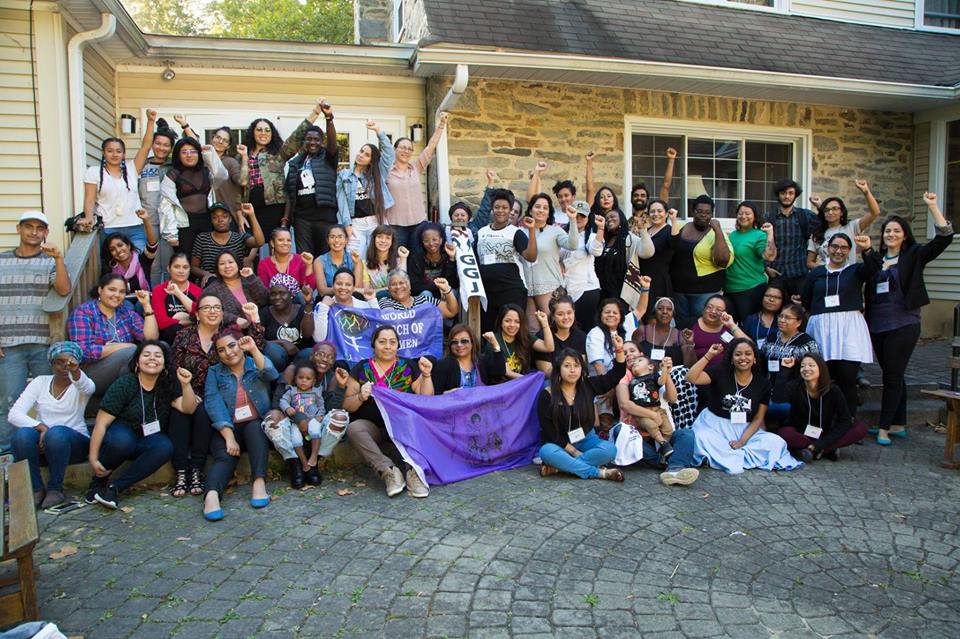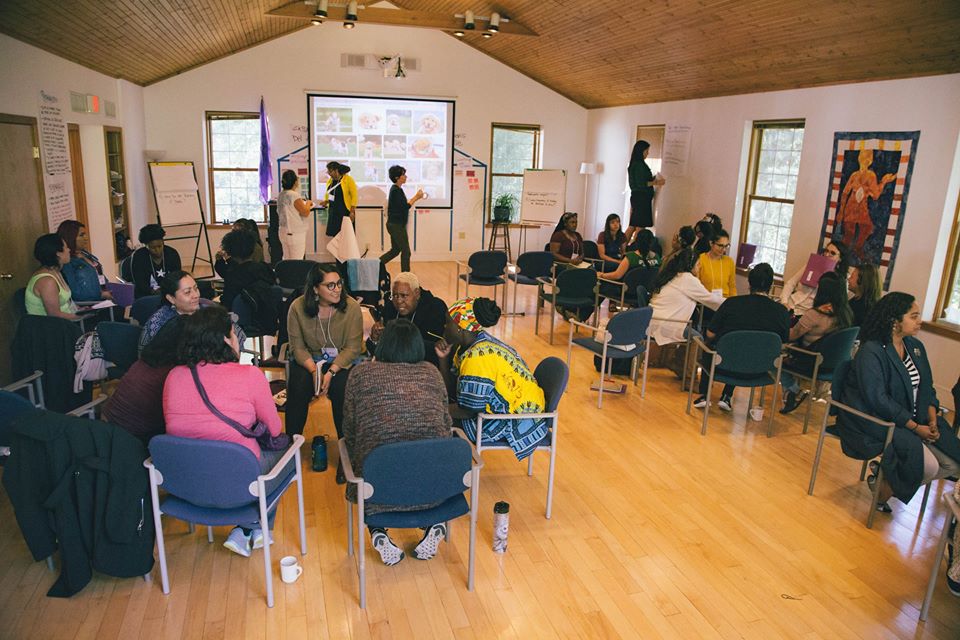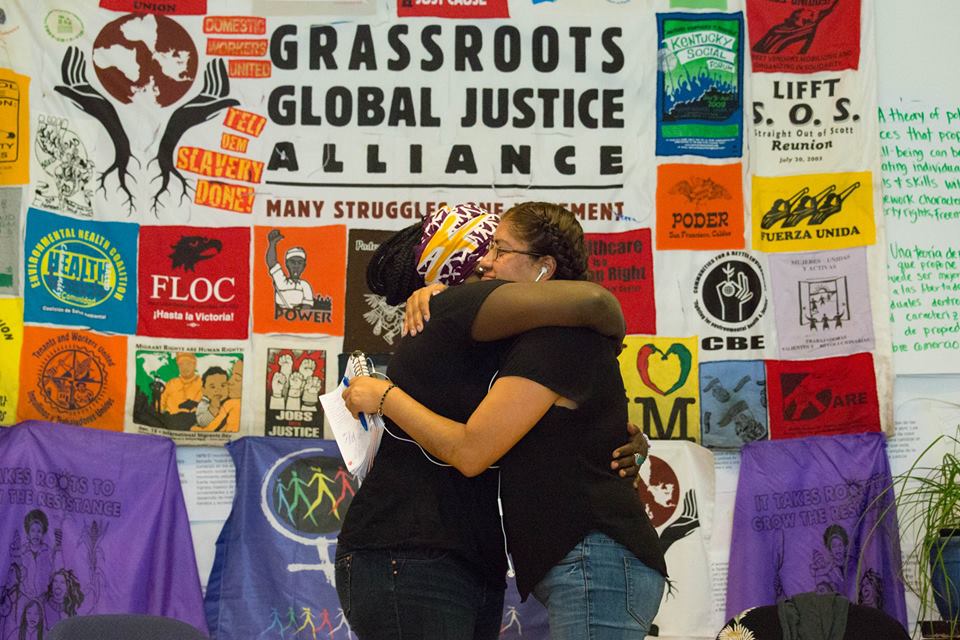By Angela Scott

The first week of October I attended Grassroots Global Justice Alliance’s Feminist Organizing School in Philadelphia with 40 other feminists from all over the Country and different parts of the world. I identify as a woman who believes in equality of the sexes. Before this school, I thought that basically made me a feminist, but in delving into sexuality, gender, patriarchy, capitalism, feminist economy, and other subjects I realized that feminism means so much more.
The week began with a discussion about The Master’s House, where we defined capitalism, patriarchy and colonialism and discussed how they can intersect and often work together to oppress women through systems or structures like school, work, family, media, religion, and/or culture. 
We began to talk about what this looks like and how it intersects with race and class. For instance, women are paid less than men in the workplace. “Women’s work” or reproductive that is traditionally done by women, like in-home work, caring for children and the elderly or nurses, and teachers is unpaid but if it is paid, this work is always undervalued and this is especially true if the worker is a woman of color.
We also looked at levels of oppression from Institutional to Interpersonal to Individual and discussed how we are taught through these institutions to devalue women and how this plays out through our interpersonal relationships with others and our relationships with ourselves.
During the organizing school we also discussed the World March of Women (WMW), which is an international feminist action movement connecting grassroots groups and organizations working to eliminate the causes at the root of poverty and violence against women.  Sophie Ogutu, a feminist activist with WMW shared a story about agency and solidarity within the feminist movement and left us with three words when asked what advice she would give, “Organize, Organize, Organize!”.
Sophie Ogutu, a feminist activist with WMW shared a story about agency and solidarity within the feminist movement and left us with three words when asked what advice she would give, “Organize, Organize, Organize!”.
This intensive five-day school created a space for us, feminists from all around the globe, to gather together and learn from each other inside and outside the formal learning space. One highlight was a conversation I had with an Indigenous activist from Canada about food sovereignty. She shared that the price of milk where she lives is $18 but a liter of Coke is $3. For some people, eating healthy isn’t really a choice. I identified with this because I live in a food desert where the price of healthy food is high but fast food or unhealthy food choices are always readily available. There are times when activists can feel isolated or that we are fighting alone, but this coming together reminded me that we are all fighting the same fight and essentially the same oppressors. Connecting and sharing our methods is key to persevering in the fight.
Over the course of five days, we unpacked Gender and Capitalism, the World March of Women, Feminist Economics, and Organizing with a Feminist Lens. Although I am still processing what I learned from the facilitators as well as my fellow students, I am eager to get back to organizing in my community and to incorporate what I’ve learned into my work. I am very grateful to Global Grassroots Justice Alliance and the women who put much time and detail into this work. I am excited for the future of feminism and I commit myself to this woman’s work.


